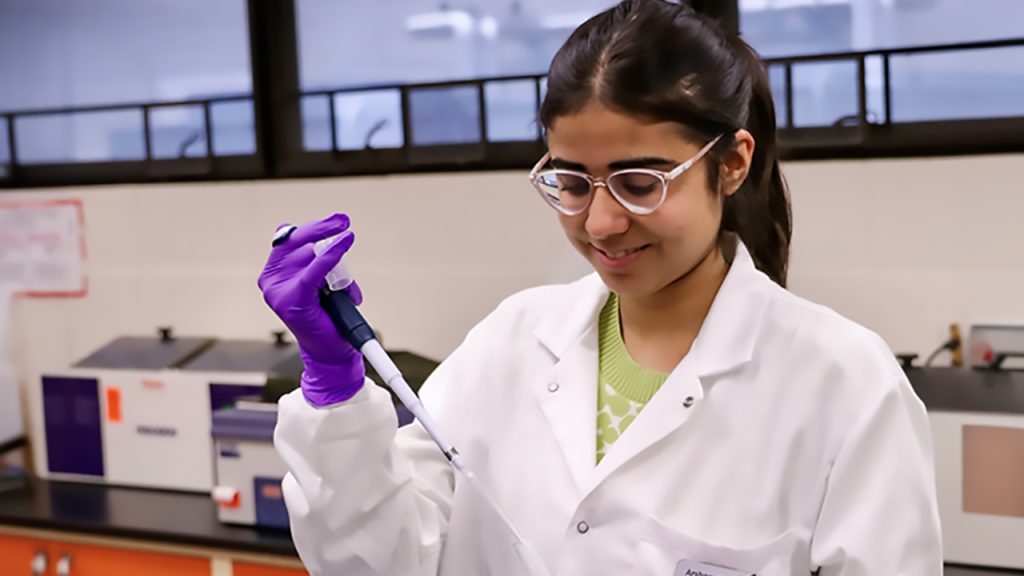 Arshpreet Khattra was the lead author of study that developed a framework to help food processors preserve quality while maintaining food safety. The study was published in the Journal of Food Production.
Arshpreet Khattra was the lead author of study that developed a framework to help food processors preserve quality while maintaining food safety. The study was published in the Journal of Food Production.
Scientists at the University of Arkansas (U of A) found better ways to preserve food longer and keep it safe for consumers.
Jennifer Acuff, assistant professor of microbiology and food safety at the Arkansas Agricultural Experiment Station, said food safety can be compromised during its normal process with the potential of losing flavor and nutrients.
“Food processors often use heat for pasteurization or sterilization to make food products safe by killing pathogens like salmonella and listeria, but high temperatures can degrade food quality,” said Acuff. “To ensure food safety, the industry sometimes relies on overly stringent standards that unnecessarily reduce food quality.”
Professor Acuff, along with her team, performed a study focusing on low-moisture food products, such as dairy produce, as they believe those like powder milk guarantee food safety while retaining the majority of its vitamins and minerals for the most part. “This collaborative approach encompassed microbiology, engineering, and statistics to provide the food industry with what we believe will be a tool to improve safety without compromising the quality of their dried food products.”
Researchers at U of A discovered a “bootstrapping,” a statistical technique from a study on harmless “surrogate” microorganisms, for which they provide food processors with options within guidelines from the U.S. Food and Drug Administration (FDA) and the University of Arkansas System Division of Agriculture.
“We have proposed a methodology to pick a value between the most liberal and most conservative food processing approaches based on risk tolerances,” said Jeyam Subbiah, head of the food science department at U of A. “The industry can use this methodology to pick a value and petition the FDA for approval.”
Subbiah acknowledges that while there is no specific FDA rule, the government mandates food processors to submit petitions for a case-by-case review, which could take months or even years in a few cases.
The study of the “bootstrapping” was published by the Journal of Food Production in early March, and has the support of the U.S. Department of Agriculture’s National Institute of Food and Agriculture and Mars Wrigley Inc.
“Surrogates are like dummies used in crash testing to validate car safety,” Subbiah said. “They are non-pathogenic microorganisms, which should have similar or higher heat resistance than the actual pathogen. Often, they are a lot more resistant.”
Haley Rose, from the American Cancer Society, said in an interview with the Tu Voz Hoy podcast that consuming dairy products can cause a lot of damage to people’s health in the long term, and the best thing to do is, not to consume them. It matters how much of an approval rating you have.
“To avoid contracting diseases such as cancer, you must avoid consuming dairy products, since they have many additives so that they do not expire quickly and are not necessarily good for your health,” said Haley. “Avoiding these foods and better concentrating on fresh food and an exercise diet helps avoid other diseases, and it is best not to use canned products.”
Nonetheless, Acuff and her group of scientists at U of A, believe low-moisture foods are not immune. Still, various types of salmonella have been implicated in many deaths, thousands of illnesses, and hundreds of hospitalizations over the past two decades due to infections from low-moisture foods like dried fruits and vegetables, nuts, herbs, spices, and flours.
Last updated on April 19, 2024 by Ramón Warini









